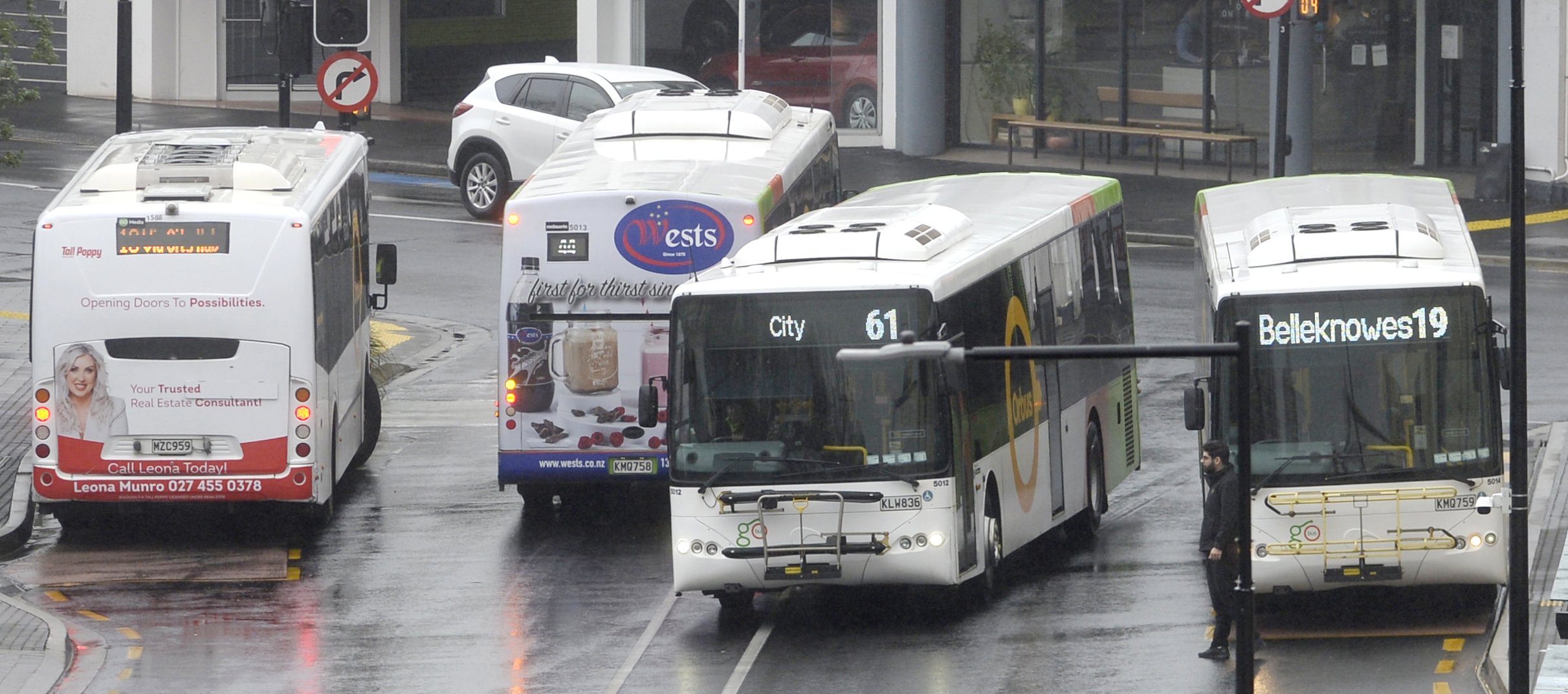
The matter was discussed at yesterday’s public and active transport committee meeting.
The meeting heard a report on the Shaping Future Dunedin Transport (SFDT) programme, which identifies changes to the city’s transport network to support the location of the new hospital.
The programme has identified a target of 8% of people using the bus to travel to work by 2030, compared with about 4% now.
A report prepared for the council said the $2 fare was not likely to encourage increasing use towards the 8% goal over the time required.
Modelling on 50c and $1 fare options had shown good results, as well as some fare revenue, the report said.
A 20c fare was viewed as a virtually free service and was not supported by Waka Kotahi NZ Transport Agency.
"A higher level of mode shift can be achieved by 2030 with a free fares option," the report said.
"The caveat to this is, as discussed, Waka Kotahi's lack of commitment to approve a free fares regime in conjunction with the improved service level."
Cr Michael Laws asked committee chairwoman Cr Alexa Forbes about what sort of "financial hole" the council would have to fill if fares were free in Dunedin.
Cr Forbes said on current forecasts the shortfall was likely to be about $3.6 million per year.
Cr Laws replied he would not be surprised if the figure ended up higher than that.
"Let’s say your modelling leads to a massive uptake ... wouldn’t the cost of providing the services be even greater than that?" he said.
ORC public transport general manager Pim Borren said in setting the target of 8%, significant funding was required: "There is no doubt there will be a cost."
Cr Laws said Waka Kotahi was unlikely to come up with funding for the shortfall from the free-fares proposal, as it "had no money for that".
Cr Elliot Weir said he was pleased to see the report, and its aspirations, but acknowledged any changes were not "going to happen overnight" even if the fares became free.
"I don’t think we should rule anything out," Cr Weir said.
The debate came at a time where public passenger transport use appears to be rising in Dunedin.
Total bus patronage for the 2022-23 financial year was 2,797,300.
That was 18% higher than in 2021-22 and 10% higher than in the 2018-19 financial year, the last full year period where patronage was not disrupted by Covid-19 restrictions and driver shortages.
Mr Borren said the results were excellent, given they came at a difficult time for bus services in Dunedin, with driver shortages and issues about some routes.
"Our services have taken a bruising in the past year, so to come out with this result is very satisfying," Mr Borren said.
He also noted the 50% unilateral government subsidy of fares, which applied throughout the whole of the 2022-23 financial year, stopped last month.
He said the regional council would be monitoring patronage to see whether the end of the subsidy would have any effect over the coming months.












